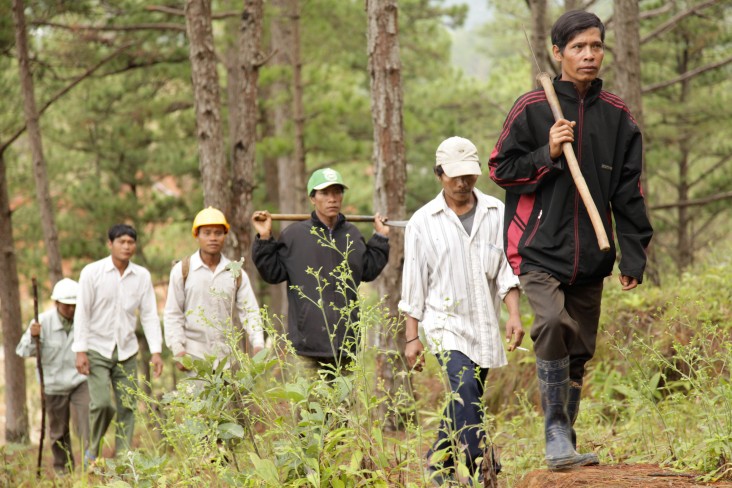
Southeast Asia's aggressive economic growth has come with significant environmental costs. The region's natural forests continue to be lost at an alarming pace, resulting in devastating impacts on the region's biodiversity, as well significant greenhouse gas emissions. Growing demands for food, wood, and economic-development opportunities are key drivers, which are underlined by the common belief that forests are a free resource to be utilized and exploited at will.
In the Mekong region, USAID's Biodiversity Conservation Program is demonstrating an innovative approach to forest man-agement and sustainable conservation financing known as Payments for Environmental Services (PES). The objective of PES is to increase financial incentives for forest protection. A classic example of this is New York City's decision to invest millions of dollars per year in upstream watershed conservation to ensure a clean and reliable water supply to the city.
As of September 2010, payments totaling US $1.8 million were made by hydropower plants, tourism businesses, and the water company in Ho Chi Minh City into a provincial forest protection fund. Payments were then disbursed to 22 Forest Management Boards and forestry businesses, as well as to nearly 8,000 households, about 80% of which are ethnic minorities, in order to conduct forest protection activities. Activities resulted in enhanced protection of over 200,000 hectares of threatened forest land. The average annual payment per household was approximately US$540-615, representing a 400 percent increase over previous forest protection payments made by the Vietnamese government.
Based on the successful results during the pilot phase, Vietnam officially approved additional protection of over 12 mil-lion hectares of forest and the improvement of livelihoods of over 20 million people. This is the first such policy in Asia and serves as a model for other countries to develop economically viable approaches to support conservation and sustainable management of forests and biodiversity. Cambodia, Laos, and Thailand have also been learning from the Vietnam experience and are now working on implementing similar approaches







Comment
Make a general inquiry or suggest an improvement.